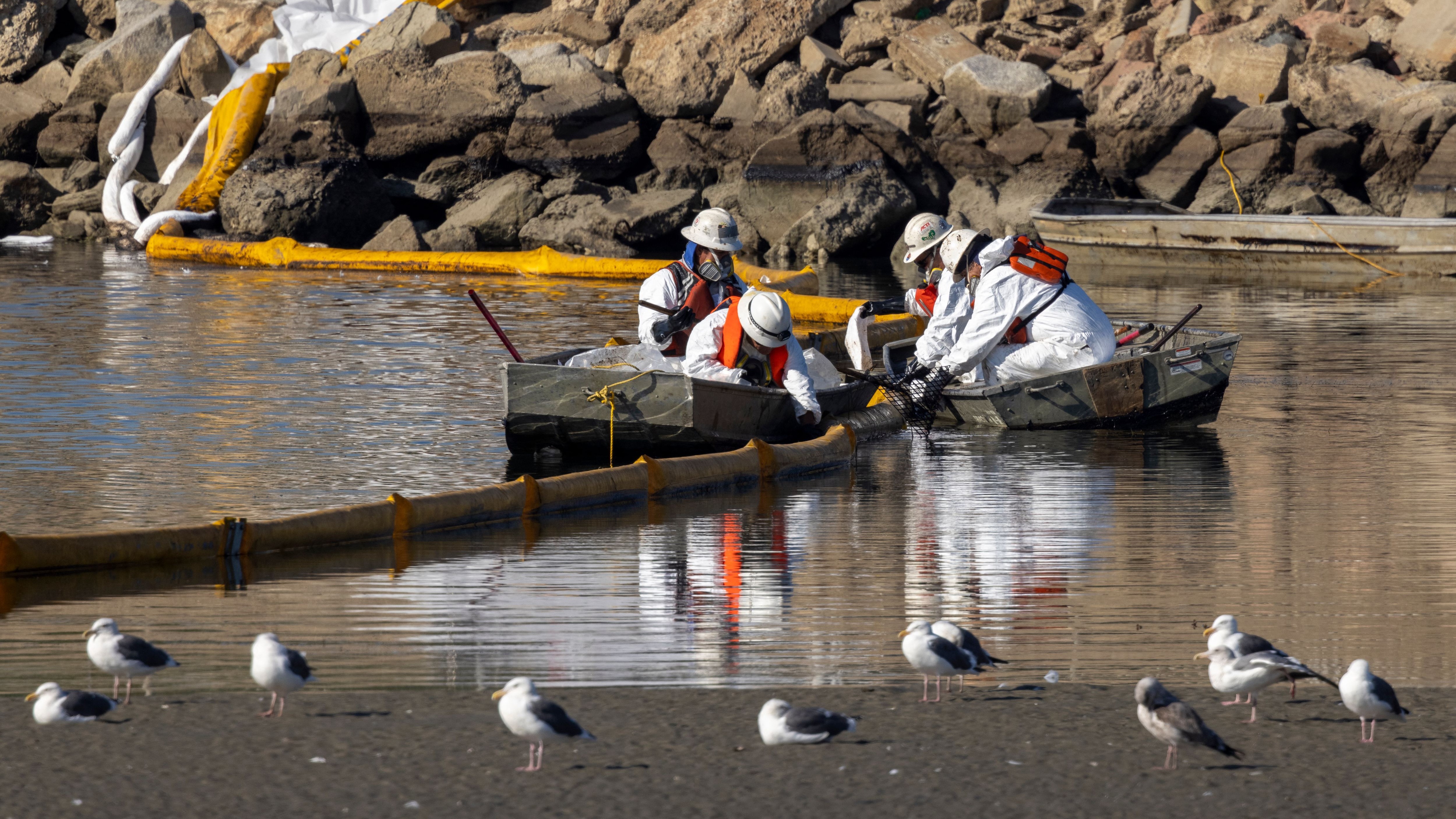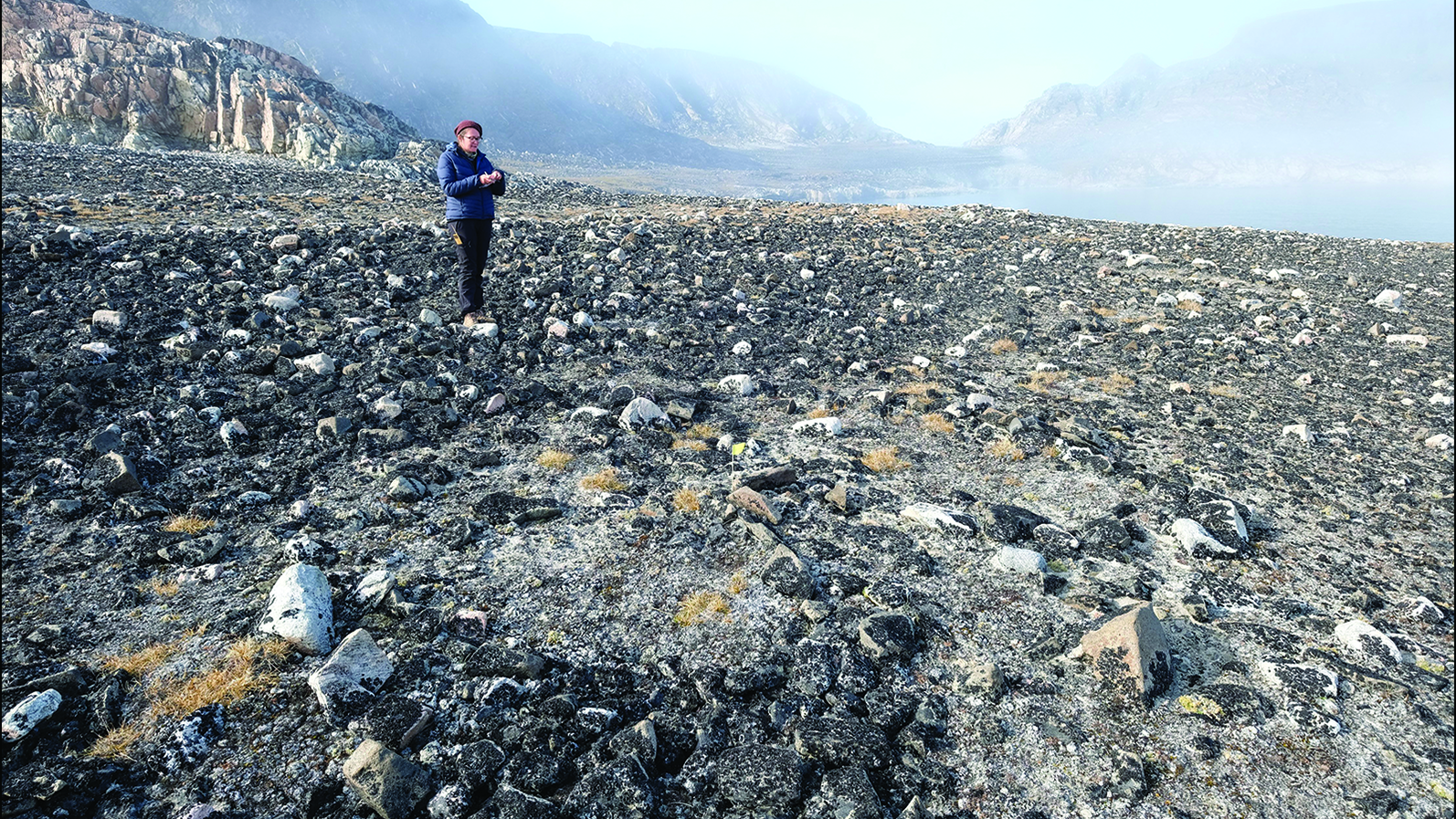126,000 gallons of oil spilled along California coast in 'potential ecological disaster'
Several protected wetland habitats are under threat from the toxic goop.
Get the world’s most fascinating discoveries delivered straight to your inbox.
You are now subscribed
Your newsletter sign-up was successful
Want to add more newsletters?

Delivered Daily
Daily Newsletter
Sign up for the latest discoveries, groundbreaking research and fascinating breakthroughs that impact you and the wider world direct to your inbox.

Once a week
Life's Little Mysteries
Feed your curiosity with an exclusive mystery every week, solved with science and delivered direct to your inbox before it's seen anywhere else.

Once a week
How It Works
Sign up to our free science & technology newsletter for your weekly fix of fascinating articles, quick quizzes, amazing images, and more

Delivered daily
Space.com Newsletter
Breaking space news, the latest updates on rocket launches, skywatching events and more!

Once a month
Watch This Space
Sign up to our monthly entertainment newsletter to keep up with all our coverage of the latest sci-fi and space movies, tv shows, games and books.

Once a week
Night Sky This Week
Discover this week's must-see night sky events, moon phases, and stunning astrophotos. Sign up for our skywatching newsletter and explore the universe with us!
Join the club
Get full access to premium articles, exclusive features and a growing list of member rewards.
Around 126,000 gallons (573,000 liters) of crude oil has spilled from a ruptured pipeline off the California coast and begun washing up on beaches and wetlands, along with several dead animals.
The U.S. Coast Guard reported the spill at 9 a.m. local time on Saturday (Oct. 2), after boaters noticed a sheen on the ocean surface, according to CNN. The oil slick now covers around 13 square miles (33.7 square kilometers) and has begun washing up on the shoreline between Huntington Beach and Newport Beach, causing widespread beach closures that could last for weeks or months, according to Reuters.
"In a year that has been filled with incredibly challenging issues, this oil spill constitutes one of the most devastating situations that our community has dealt with in decades," Kim Carr, the mayor of Huntington Beach, told the Associated Press. She also described the spill as an "environmental catastrophe" and said that it could become a "potential ecological disaster."
Related: The 10 weirdest spills in nature
Officials believe the oil originated from a leak in an underwater pipeline connected to an offshore drilling facility owned by Beta Offshore, a subsidiary of Houston-based Amplify Energy. The company has shut off the pipeline and suctioned out all the remaining oil to prevent further spillage. The company also sent a remotely operated vehicle (ROV) to the site to determine exactly what went wrong, according to an Amplify Energy statement.
A wide-scale clean-up including both federal and state agencies is now well underway. "This response is currently a 24/7 operation and response efforts are scheduled to continue until federal and state officials determine that the response to the crude oil spill is complete," the U.S. Coast Guard told CNN.
However, there are fears that the spill could have wide-reaching implications for marine wildlife. Already, several dead oil-covered fish and birds have been confirmed in the area, with many more unconfirmed reports starting to come in, officials with the City of Huntington Beach said in a statement.
Get the world’s most fascinating discoveries delivered straight to your inbox.
Wildlife experts are also warning of long-term environmental problems as a result of the spill. "It has long-lasting effects on the breeding and reproduction of animals," Miyoko Sakashita, director of the Center for Biological Diversity’s oceans program, told AP News. "It’s really sad to see this broad swatch oiled."

Local conservationists are particularly worried about several protected wetland habitats in the area, which are home to numerous bird species, including the snowy plover (Charadrius nivosus) and the California least tern (Sternula antillarum browni), which are both listed as endangered under the Endangered Species Act, according to AP News.
"The oil has already infiltrated many of our wetlands in Huntington Beach and the Talbert area," Katrina Foley, an Orange County supervisor, told CNN. "And we want to do everything we can to prevent it from intruding into that area even further."
Around 2,000 feet (610 meters) of protective booms — floating barriers that contain oil spills — have been released at seven wetland locations in an attempt to limit the amount of oil that pollutes them, according to the City of Huntington Beach statement.
The Coast Guard is also using absorbent booms to remove oil from the water's surface, but so far, only around 3,000 gallons of oil just 2.4% of the amount spilled, has been removed, according to Reuters.
The California Department of Fish and Wildlife has ordered a fisheries closure in waters up to six miles off the coast due to fears that oil may also contaminate seafood and cause public health problems, according to Reuters.
Originally published on Live Science.

Harry is a U.K.-based senior staff writer at Live Science. He studied marine biology at the University of Exeter before training to become a journalist. He covers a wide range of topics including space exploration, planetary science, space weather, climate change, animal behavior and paleontology. His recent work on the solar maximum won "best space submission" at the 2024 Aerospace Media Awards and was shortlisted in the "top scoop" category at the NCTJ Awards for Excellence in 2023. He also writes Live Science's weekly Earth from space series.
 Live Science Plus
Live Science Plus











